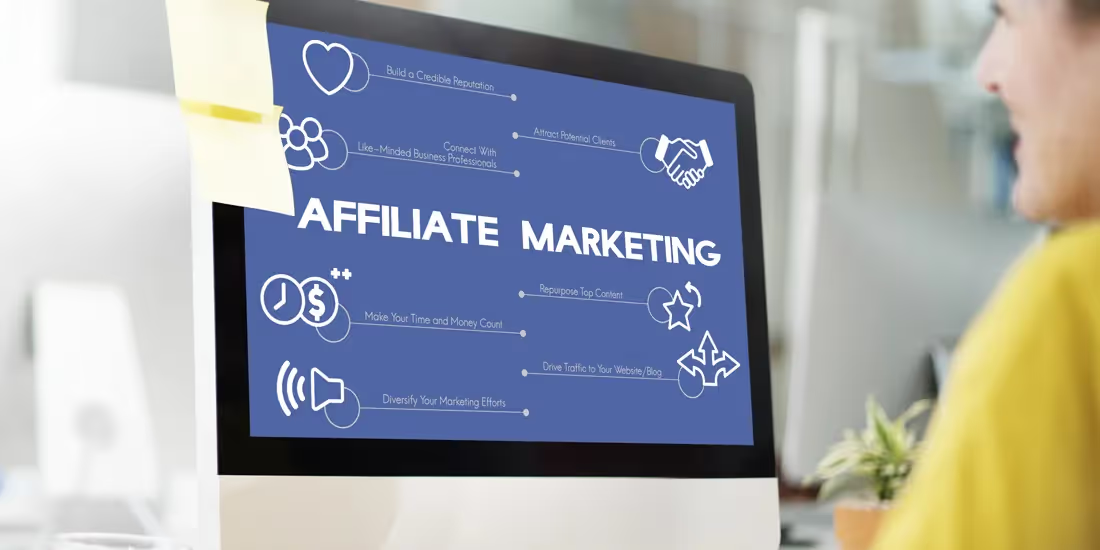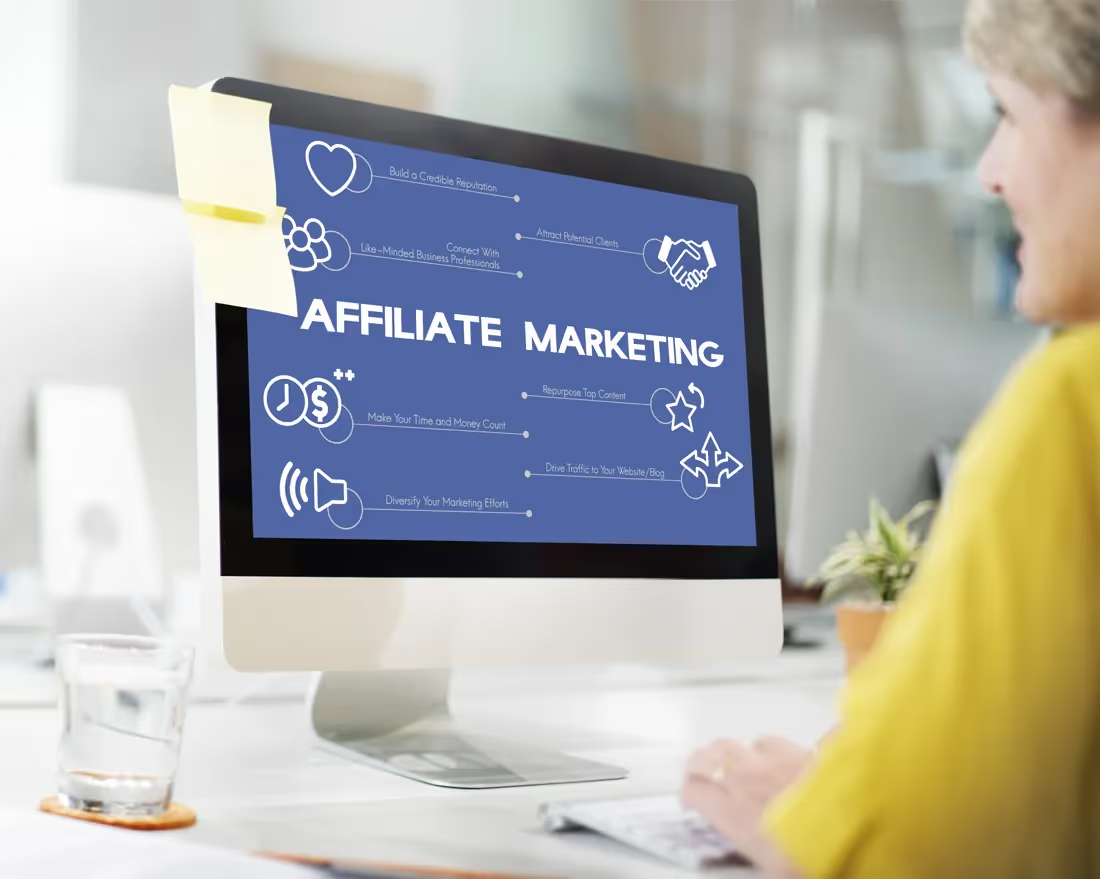
Do you want your brand to make more sales? Are you in search of fresh marketing strategies, but you’re concerned about the risk and investment? Affiliate marketing might be the perfect strategy for you. Many brands find success using affiliates to attract sales for their businesses. If your brand represents luxury or high-priced products and services, or if you need to attract only the best affiliates to your program, you might benefit from a high-ticket affiliate marketing strategy.
What is high-ticket affiliate marketing?
What is high-ticket affiliate marketing? We should start by defining affiliate marketing, which is a strategy in which third-party affiliates such as influencers and bloggers use their own resources to promote a product, service or brand, earning a commission only when a sale occurs. That commission is usually a portion of the sale’s profit, so higher-priced purchases usually result in larger payments to affiliates. The strategy is popular among brands because it carries low risk. If the affiliate is unsuccessful, it costs the brand nothing to work with them.
High-ticket affiliate marketing is just one type of affiliate marketing. The term applies to both promoted products carrying a commission rate higher than the typical affiliate marketing price, as well as expensive products that result in a larger commission even at a standard rate. In both of these scenarios, the promoted products are usually harder to sell, and so achieving success as a high-ticket affiliate marketer can be challenging. Still, these programs can be attractive to skilled affiliates since commission rates for selling high-ticket products are usually about $100 per sale and higher.
Benefits of high-ticket affiliate marketing
Brands can benefit from high-ticket affiliate marketing for a variety of reasons since it is both an affordable and profitable strategy. The advantages of high-ticket affiliate marketing include:
- Attract more high-quality affiliates – As affiliates gain more skill, experience and success in their marketing efforts, they naturally will seek better-paying opportunities. A high-ticket affiliate marketing program will attract the highest-quality affiliates who will be more motivated to produce sales.
- Boost ROI – Because affiliate marketing programs only pay commissions when sales are made, affiliates use their own resources to promote products, and they present them to a highly-targeted audience, affiliate marketing typically results in a higher return on investment than other marketing strategies.
- Increase order values – When affiliates are paid more for high-ticketed sales, they are more motivated to encourage higher order values. The natural inclination of high-ticket affiliate-promoted products to be priced higher also contributes to these increased order values.
- Enjoy minimum costs – Not only does it cost a minimum investment to start a high-ticket affiliate marketing program, but the ongoing costs also remain low. Brands that focus exclusively on affiliate marketing strategies require no marketing or advertising teams, nor do they need to purchase advertising space.
- Target niche audience – Practically every successful affiliate marketer boasts their own niche audience with specific interests. By choosing affiliates who speak to the correct target audience, brands can ensure their products will be promoted to those most likely to purchase them.
Is high-ticket affiliate marketing right for your brand?
It’s easy to think high-ticket marketing is reserved for expensive products. While it certainly applies to high-ticket items and luxury goods, products sold through high-ticket marketing strategies don’t have to be expensive. A brand might raise its affiliate commission rates on standard products in order to attract more skilled and motivated affiliates. Or, perhaps a standard product is more difficult to sell, and a brand must raise its affiliate commission rates to mirror the effort it takes affiliates to make a sale. Some of the most common products sold through high-ticket affiliate marketing strategies are software and other digital products since they provide an opportunity for recurrent sales.
Is high-ticket affiliate marketing right for your brand? If you sell high-ticket items, the easy answer is probably “yes.” But it might be the right strategy even if your brand sells standard-priced products. Are you looking for only the most motivated affiliates? Does your product require extra effort to sell, or is your pricing model a recurrent one? If you answered yes to any of these questions, then high-ticket affiliate marketing might be the perfect strategy for your brand.
How to bring management on board with high-ticket affiliate marketing
Now might be the perfect time for your brand to adopt a high-ticket affiliate marketing strategy, but how do you convince management? Just like when preparing any pitch, it’s important to have your facts in order. Research the benefits of high-ticket affiliate marketing, like those discussed above, and be sure to include any industry-specific statistics.
Once you’ve gathered all the information you need to persuade management that high-ticket affiliate marketing is the right choice for your brand, you’ll want to prepare an effective presentation. Engaging slide decks created with PowerPoint-alternative presentation software are one of the most popular and effective methods of pitching a new strategy to management.
You don’t have to be an experienced designer to create a visual presentation that dazzles leadership, either. Beautiful.ai users can choose from a variety of presentation templates with slides perfectly curated to demonstrate a broad range of topics. You might customize the marketing communication plan template, which includes infographics to illustrate market statistics and measure goals, for example. Other popular presentation templates that can be customized to pitch a high-ticket affiliate marketing strategy include the project plan template, the influencer marketing proposal template and the digital marketing proposal template, as well as a variety of customizable pitch deck templates.







.gif)
